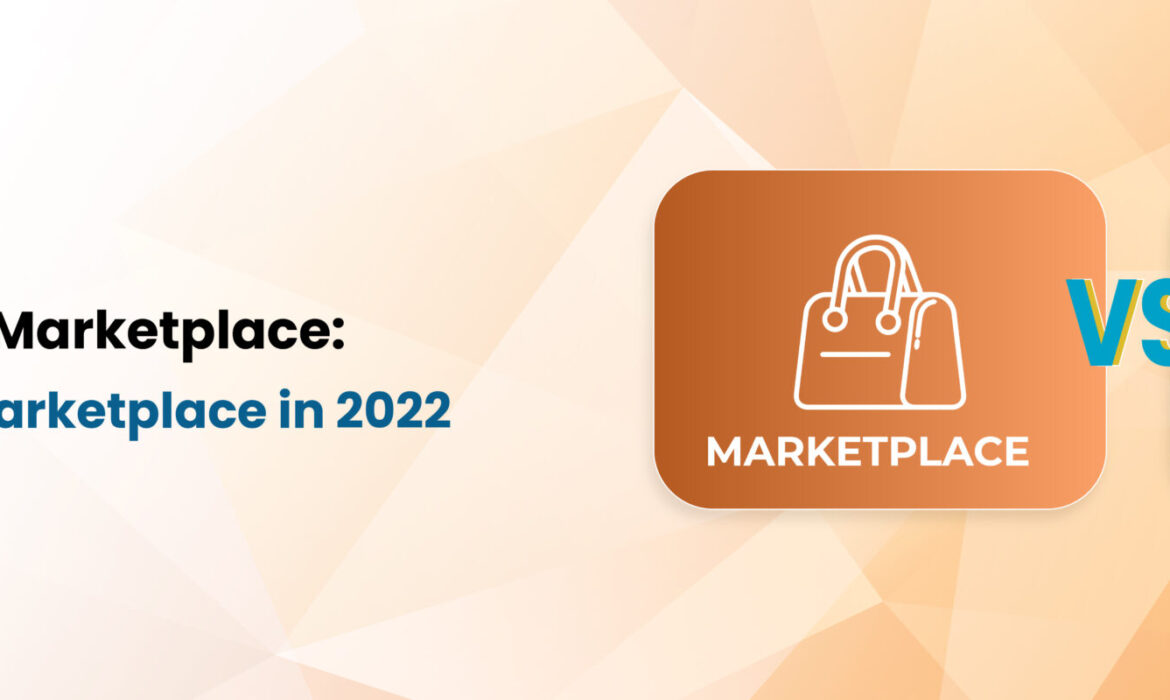Ecommerce vs Marketplace – Importance of Marketplace in 2022
First things first: Both business models consist of online shops. The main difference is that one (eCommerce) supports only one seller, the store owner, and the other (marketplace) allows multiple sellers to list products through the same store, there are both the store owner and the third-party seller who operate under the hood. For the end customer, there is no practical difference in the purchase process: it is the same and happens on the same website, without any interruptions.
While this difference may be irrelevant to the end consumer’s shopping experience, for business owners it’s quite the opposite: choosing one or the other implies a huge impact on the operation.
Ecommerce operations
In a regular e-commerce operation, the business owner sells their own inventory and handles every part of the operation, from purchasing to its fulfillment and everything backstage: warehousing, order processing, payments, logistics, and taxes to quote a few. In short, in an e-commerce store, the owner is responsible for ensuring that everything works correctly and that the order reaches the final customer. In this case, the website owner is the only seller.
Marketplace operation
A marketplace is an evolution of an eCommerce platform that enables third parties to sell through it, which means that other than the actual owner other sellers can also show and sell their products.
For retailers, the marketplace is a way to raise the product assortment without the additional work of storing, managing, and fulfilling them. In a marketplace, sellers take care of their own operations – the commerce website act as a sales channel for them to promote their products and services in order to reach wide customers.
Why marketplace?
For the owner, a marketplace operation is a key to increasing the business to different markets and segments and creating incremental revenue with small investment and risk, given that the seller is accountable for its own sales and orders. For third parties, selling on marketplaces is a way to add an additional sales channel to present its products and to make them available on reliable and well-known websites. Also, therefore, to reach wide potential customers that they wouldn’t by themselves.
The beneficial Advantages of becoming a marketplace
- Increasing product assortment
Providing a wider product assortment is a well-known way to raise revenue, but we know that it is not an easy task since there’s the need of improving and enlarge inventory and manage even more SKUs.
As a retailer, once you become a marketplace you can set up new partnerships and welcome sellers that have a varied product assortment, from new, local brands to different product categories and so on. This means that you get to raise product assortment with no risk or high investment, by enabling new sellers on your platform.
- Total control over the operation
If you’re concerned about having less control as a marketplace than you would with an eCommerce store, don’t worry. As the owner, you have full control over who can become a seller on the platform, which products can be sold, and can also set the selling rules you want if needed.
All this without additional effort. With you can automate supplier management and product approval while providing partners with a self-service portal to manage their own products and track their sales and orders.
- Gathering consumer insights
Imagine having consumer data and insights that cannot be gathered as part of e-commerce. That’s what a market does for you: open doors to opportunities and new business plans.
By having suppliers from different markets that sell different products and brands, you can learn about a whole new consumer habit and gather the information that can inform your company’s next steps to better meet customer needs.
- Building loyalty and reaching new customers
When consumers can find all types of products, brands, and different price ranges on your platform, why should they shop anywhere else? As a marketplace, you provide the convenience people are looking for and become the place to shop, selling everything they need and giving them choices.
This is not only a way to keep consumers, but also to reach new audiences: some items and product categories are once only available in other e-commerce stores, and stores can also be found in yours.
Conclusion
Ecommerce and marketplace are two distinct types of platforms. An eCommerce store is a standalone website built with the help of eCommerce solutions such as Shopify, WooCommerce, or Magento. On the other hand, a marketplace is a platform where customers search for sellers. , connect and buy goods.

